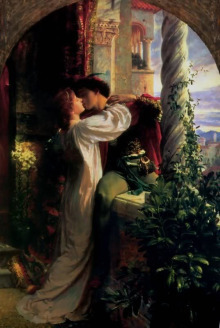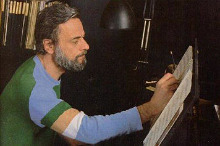Matt Rees's Blog - Posts Tagged "romeo-and-juliet"
An Islamic Romeo and Juliet
 Since 9/11, journalists and writers have tried to make sense of the extremists committed to the destruction of the West and, often, that of their own societies in the Middle East. Mostly this has meant “going inside” the world of those extremists, giving us the inner life of suicide bombers or of the “American Taliban.”
Since 9/11, journalists and writers have tried to make sense of the extremists committed to the destruction of the West and, often, that of their own societies in the Middle East. Mostly this has meant “going inside” the world of those extremists, giving us the inner life of suicide bombers or of the “American Taliban.”It’s a worthy premise, because it’s aimed at comprehending people who are frequently written off as bestial, bloodthirsty psychopaths, as though they’d been born that way. As a journalist with 14 years experience in the Middle East, I’ve written such stories often enough. But in my new novel I decided to highlight the desperate world of Arabs who struggle against the extremism that drags them toward their inevitable, tragic end. This is the most profound way of humanizing Arabs, because it shows them clinging to the very things that make them just like us, rather than succumbing to the ugliness of a politics that sets them against us.
That’s why I see my new crime novel, “The Fourth Assassin,” as an Islamic “Romeo and Juliet” set in the context of a political assassination plot in New York. I want to put a human face on Arabs, who’re so often seen as stereotypical terrorists. But I want to focus less on the pain and confusion that leads to hatred, and instead to reveal the love that can provide hope for Arab people in the face of so much destruction and division. To illustrate, for Western readers, what they’re up against, too.
“The Fourth Assassin” begins with Omar Yussef, the hero of my previous three Palestinian crime novels, arriving in New York for a UN conference. He uncovers an assassination conspiracy involving some of his former pupils from back home in Bethlehem. It unfolds in the neighborhood of Brooklyn called Bay Ridge. With its growing Palestinian community, Bay Ridge is in fact becoming known as “v”.
As he delves into the background of the plot, Omar looks for political explanations. That’s what journalists and writers typically do when they examine the Middle East. But gradually Omar sees that there’s a love story behind what’s happening. A love story between a young Sunni Muslim who has been sucked into the assassination plot and a Lebanese Shia girl who wants to enjoy the freedoms of American life.
The book’s a crime novel, so I’m not giving anything away when I say that Omar sees these lovers as tragic, somehow doomed by the politics around them. But he acknowledges – as the lovers do – that their human connection is so important that it’s worth any sacrifice. Just as Romeo does when he rails against the family politics that would deny him his Juliet and designate such divisions as fated. “Then I defy you, stars,” he calls out.
With Romeo and Juliet, the doom that surrounds them isn’t the point of the play. It’s their hope and defiance that draws them to us. If Shakespeare had written a three-hour examination of the political conflict between the Montagues and the Capulets, I don’t expect we’d pay it much attention these days. Neither would we be interested in the play had it focused on Tybalt, Juliet’s hot-headed, murderous cousin, or Mercutio, the pal of Romeo who shouts “a plague on both your houses” as he dies. Yet that’s exactly what journalists and writers give us in their attempts to “explain” the Arab world.
Love is what helps us to understand those who seem otherwise to be set against us. That’s what Omar Yussef learns in “The Fourth Assassin.” I hope the novel will help my readers see that love is as much a part of life for Arabs as the violence that dominates their portrayal in the news pages.
Published on April 02, 2010 02:05
•
Tags:
9-11, american-taliban, arabs, bay-ridge, bethlehem, brooklyn, crime-fiction, islam, lebanon, middle-east, montagues-and-capulet, new-york, omar-yussef, palestine, palestinians, romeo-and-juliet, shakespeare, taliban, the-fourth-assassin
Sondheim in the West Bank
 I’m in between drafts of a novel, so I thought I’d look for something to clear my head. Inspired by a BBC broadcast last week in honor of the 80th birthday of Broadway lyricist and composer Stephen Sondheim, I’ve been working on a musical version of my Palestinian crime novels. (Only in the shower, so far…)
I’m in between drafts of a novel, so I thought I’d look for something to clear my head. Inspired by a BBC broadcast last week in honor of the 80th birthday of Broadway lyricist and composer Stephen Sondheim, I’ve been working on a musical version of my Palestinian crime novels. (Only in the shower, so far…)I’m thinking of updating the Romeo and Juliet story and setting it in Bethlehem. In tribute to the Sondheim-Bernstein classic “West Side Story,” it’ll be called “West Bank Story,” of course, and will be the tale of the rivalry between two gangs, one Fatah and the other Hamas. I’ve already scored a couple of the numbers (“Aisha, I just met the mother of a girl named Aisha” and “I feel pretty, Oh so pretty, I feel pretty and witty and…I’d best not talk about it because the Hamas guys won’t like it.”)
I'm proud to say I have accrued quite a track record at developing disastrous failed concepts for musicals. I’ve been driving my wife crazy with these ideas for years. This is inspired by the large number of distinguished writers who’ve penned opera librettos and discovered that writer-turned-lyricists have a special graveyard all their own in Hell. Vikram Seth, Russell Hoban and, most recently, Ian McEwan have turned their hand to it. None of them seem to be rivals to Lorenzo da Ponte, Mozart’s greatest librettist, no matter how hard they’ve tried.
Which is why I’ve always thought it’s a better idea to write a failed musical. After all, did you ever see a musical that didn’t seem like it would’ve been better left in the librettist’s bottom draw – or in this case, his blog? Believe me, I know: I saw “Falsettos” on Broadway.
I’ve particularly enjoyed working on failed musicals which fall into the category first popularized by the Buddy Holly biosical (biography-musical, new word all my own) “Buddy” and recently by Green Day’s “American Idiot,” in which music people already love is jammed into a ridiculous storyline. (Ridiculous storylines are de rigeur in the Middle East, so maybe the Palestinian musical isn’t so silly…)
That brought me the following list of future Tony Award Winners:
BLOOD ON THE CHANTILLY LACE: A detective discovers that Buddy Holly and Richie Valens died when their plane came down only because gangsters wanted to rub out the third, largely unremembered passenger, The Big Bopper.
FUGUE! The life of J.S. Bach, fun-loving father of 20 and writer of the scariest piece of music ever (Toccata and Fugure in D minor for organ).
I’M A BELIEVER: The songs of The Monkees performed in Gregorian plainchant by monks.
Read the rest of this post on my blog The Man of Twists and Turns.
Published on August 04, 2010 23:04
•
Tags:
bbc, broadway, buddy-holly, elvis-presley, falsettos, fatah, fbi, frost-nixon, green-day, hamas, hank-williams, ian-mcewan, j-s-bach, leonard-bernstein, lorenzo-da-ponte, middle-east, mozart, palestine, palestinian, romeo-and-juliet, russell-hoban, stephen-sondheim, the-big-bopper, the-monkees, tony-awards, vikram-seth, west-side-story, writing



